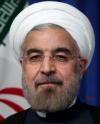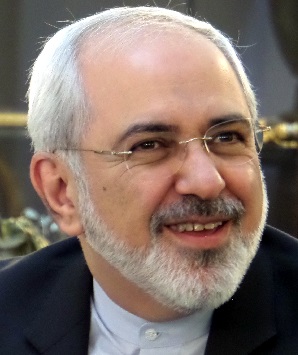On May 11, Saudi Arabia announced the start of a five-day humanitarian ceasefire in Yemen. Saudi-led airstrikes against the Houthis, however, continued until just hours before it went into effect at 11 P.M. The Houthis, a Zaydi Shiite movement, took over the capital Sanaa in September 2014. During the next several months, Yemeni officials and Sunni accused Iran of providing arms, training, and financial support to the Houthis. But Iranian officials denied the claims.
A Saudi-led coalition of Sunni nations began launching airstrikes against Houthi positions on March 26. Riyadh seeks the restoration of Yemeni President Abd Rabbuh Mansour Hadi, who is backed by the West, as a check against the rise of perceived Iranian influence in the region. Hadi fled Sanaa to Aden and then Riyadh as the Houthis gained ground.
The coalition airstrikes have since killed at least 1,400, more than half civilians, according to the United Nations. And some 300,000 have been displaced. U.N. Under Secretary General for Humanitarian Affairs and Emergency Relief Coordinator Valeri Amos welcomed the pause late on May 12 and also requested that “humanitarian assistance to Yemen be routed through existing U.N. and international humanitarian organization channels.”
Both sides have accused each other of violating the ceasefire. Within less than 24 hours, a Saudi-led airstrike was launched, reportedly in response to a Houthi attempt to send a military convoy to Aden. The Houthis also reportedly shelled residential areas in Taiz. Maritime tensions threatened to flare after Iran announced the dispatch of a ship purportedly carrying aid to Yemen. Tehran has repeatedly condemned the Saudi-led aerial campaign.
On May 12, Pentagon spokesman Colonel Steven Warren encouraged Tehran to have the ship deliver the aid to the U.N. distribution hub in Djibouti. Two days later, Yemen's Foreign Minister Riyadh Yassin warned that “all measures will be taken against the Iranian ship if it enters Yemeni territorial waters without permission” from the coalition. Yemen’s government reportedly recalled its ambassador to Iran after Tehran refused to allow its ship to be searched.
The ceasefire happened to coincide with the visit by top leaders from the Gulf Cooperation Council to the United States for a summit at Camp David. The following are excerpted remarks from Iranian, U.S., Saudi and Yemeni officials on the ceasefire and the general crisis.
Iran
President Hassan Rouhani

“If they are making excuses that Iran provides other types of assistance… let them receive our medical and pharmaceutical goods and deliver them to Yemen for help. The purpose is to save the innocent people of Yemen.”
“A government which is unaware of the issues in the region and the world, and is also quite a beginner, has decided to show some muscle for the first time.”
Saudi Arabia’s airstrikes were a “very big and strategic mistake.”
—May 9, 2015 at an Iranian Red Crescent Society conference
Foreign Minister Mohammad Javad Zarif

“The solution to the crisis in Yemen is solely political and through forming an inclusive government with the aid of all political forces and without the interference of certain foreign countries.
“Iran supports the efforts by U.N. to stop invasion, to dispatch humanitarian aid, and to establish Yemeni-Yemeni talks and believes that the only way to resolve the crisis is to establish an inclusive government rather than militarization.
“The crisis does not have a military solution and militarizing the crisis is in favor of no side.”
—May 13, 2015 in acall with U.N. Secretary General Ban Ki-moon
Supreme Leader Ayatollah Ali Khamenei
Deputy Chief of Staff of the Iranian Armed Forces Brigadier General Masoud Jazayeri
“I clearly announce that the self-restraint of the Islamic Republic of Iran has its limit.”
Attacking Iran’s aid ship “will ignite the flames of war” in the region.
United States
President Barack Obama
“Iran clearly engages in dangerous and destabilizing behavior in different countries across the region. Iran is a state sponsor of terrorism. It helps prop up the Assad regime in Syria. It supports Hezbollah in Lebanon and Hamas in the Gaza Strip. It aids the Houthi rebels in Yemen. So countries in the region are right to be deeply concerned about Iran’s activities, especially its support for violent proxies inside the borders of other nations.”
—May 13, 2015 in an interview with Asharq Al-Awsat
“This [visit by Saudi Arabian leaders] gives us an opportunity to discuss some of the bilateral issues, including the crisis in Yemen and how we can build on the ceasefire that’s been established to restore a process for an inclusive, legitimate government inside of Yemen. “
—May 13, 2015 in remarks with Crown Prince bin Nayef of Saudi Arabia
Secretary of State John Kerry
“We make clear that we remain concerned about Iran’s destabilizing actions in the region, and it is precisely because of those concerns that we believe it is so important that Iran not be allowed to have a nuclear weapon. And we will continue to work with our friends and allies in the region to define America’s and the GCC’s security relationship going forward.
“[We] are enforcing the United Nations arms embargo requirements, et cetera. We’ve been raising the level of effort of the maritime initiative with respect to the Gulf and area, most recently with the Theodore Roosevelt being moved in and other activities that we’ve been engaged in. And one of the topics of our conversation, in the context of Paris tomorrow and Camp David, will be the further steps that we will be taking together with our allies to prevent activities that are in contravention of many United Nations resolutions and also the standards and norms of international behavior between countries. So we are very, very concerned about those activities – in Iraq, with Hizballah, in Yemen, and elsewhere.”
—May 7, 2015 in a press conference with Saudi Arabian Foreign Minister Adel al Jubeir
National Security Advisor to the Vice President Colin Kahl
“I think it’s also important to keep in mind that much of Iran’s perceived success in recent years has happened despite sanctions. That is, keeping sanctions in place is not a recipe for preventing Iran from causing mischief. And the reason for that is much of Iran’s perceived success is not a consequence of their strength but, frankly, the weakness of a lot of the states in this part of the world. When you look at places like Yemen or Syria or Iraq or elsewhere, you have a weakening of state institutions, which has provided the ability for Iran to expand their influence. So, much of the solution is not necessarily a weaker Iran but, frankly, stronger partners.
“And one of the things that we’ll be focused on intensely with our Gulf State partners is how do we strengthen our partnerships with them, but also our partnerships in places like Yemen and Iraq and elsewhere, and also how do we promote power-sharing arrangements and more inclusive political institutions in places like Yemen and Iraq and Syria in ways, frankly, that help those states stabilize and over the long term help push back against nefarious influences of all kinds.”
—May 11, 2015 in a conference call
National Security Council Coordinator for the Middle East, North Africa and the Gulf Region Robert Malley
“[P]art of this is to get the GCC States in a position where they could deal with greater confidence and self-confidence and strength with Iran, not in order to perpetuate a never-ending conflict, but to engage Iran to try to resolve the problems of the region, which will only be resolved once the region itself comes together and tries to find security arrangements that will stabilize the situation in Syria, in Yemen, in Iraq and elsewhere.”
—May 11, 2015 in a conference call
Saudi Arabia
Foreign Minister Adel al Jubeir
“[W]e have always maintained that Iran should have no role in Yemen. The last time I checked, Iran didn’t have a border with Yemen. And so the Iranian role in Yemen has been a negative one. They have supported the Houthis financially, ideologically, as well as with weapons, and this is not helpful. They have tried to smuggle weapons into Yemen in the midst of this conflict, and we have been able to stop aircraft from landing in Sana’a airport. And the United States has been able to turn back a flotilla of Iranian ships, which we suspect were loaded with weapons that were intended to go to the Houthis. So no, I do not think that Iran’s role in Yemen is a helpful one. I hope they can prevail on their allies, the Houthis, to abide by the ceasefire, but that’s my view on Iran and its role in Yemen.”
—May 7, 2015 in a press conference with Secretary of State John Kerry
Saudi-led coalition command for Renewal of Hope
“[T]he coalition command, confirms to everybody that it was and is still keen to make this humanitarian truce a success as it runs in the interest of the brotherly Yemeni people, but at the same time, warns the Houthi militias and their supporters that self restraint and being committed to the truce would not last long in case the militias continue such practices and violations of the truce and that the coalition command would take the appropriate measures to deter them from such acts.”
Yemeni Foreign Minister Riyadh Yassin
“All measures will be taken against the Iranian ship if it enters Yemeni territorial waters without permission.”
—May 14, 2015 according to the press
 “If they are making excuses that Iran provides other types of assistance… let them receive our medical and pharmaceutical goods and deliver them to Yemen for help. The purpose is to save the innocent people of Yemen.”
“If they are making excuses that Iran provides other types of assistance… let them receive our medical and pharmaceutical goods and deliver them to Yemen for help. The purpose is to save the innocent people of Yemen.”